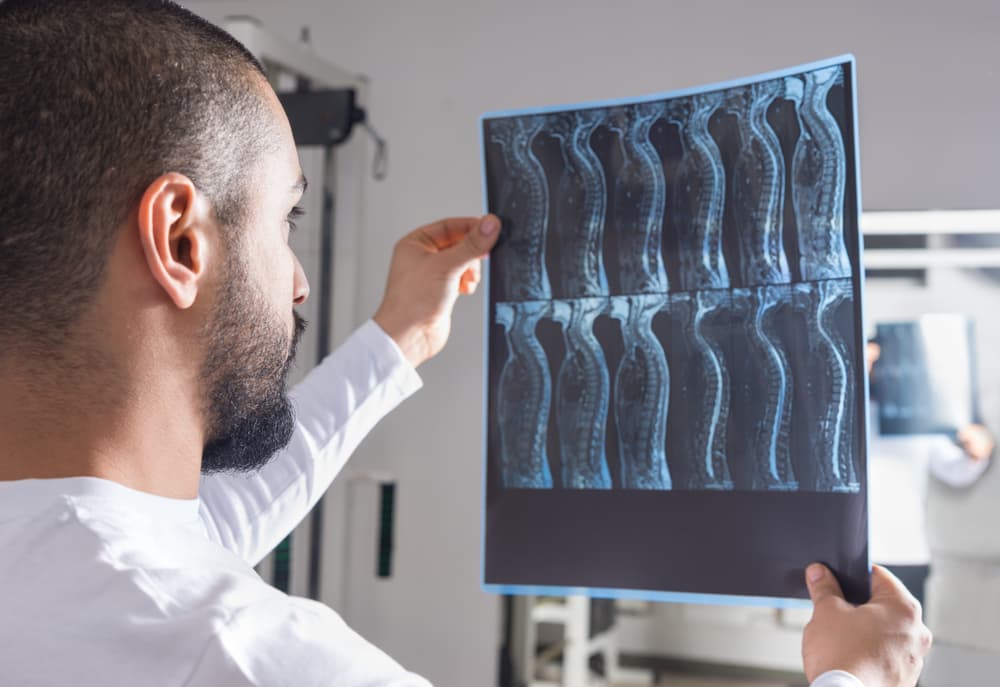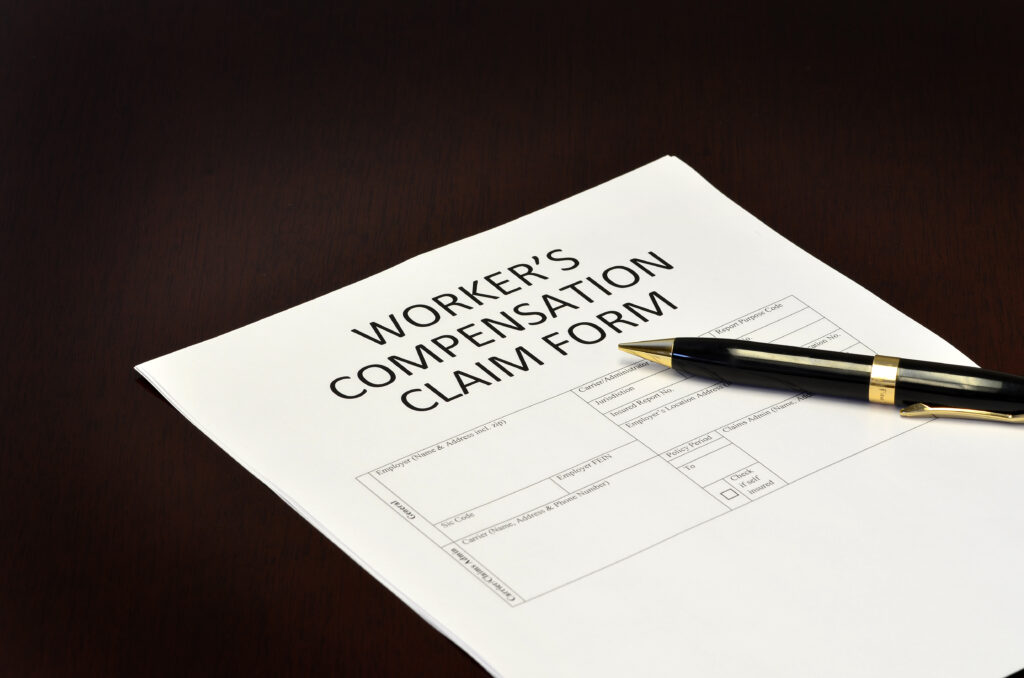
Lifting injuries can have severe consequences, both physically and financially. From strains and sprains to more serious injuries such as herniated discs or broken bones, these accidents can leave you in pain and unable to work.
Your employer may ask you to lift heavy loads as part of your job, and you may need to reach up to lift or pick things up from the ground. Either way, there is a limit on what your employer can ask you to do without exposing you to the risk of injury. Repeated heavy lifting, especially when you are not using proper techniques, can expose you to the risk of serious injury.
When that happens, you may miss an extended amount of time from work. Not only are you unable to earn income from your job, but you may incur significant medical expenses to treat your injuries.
You should file a workers' compensation claim after suffering a lifting injury on the job. If you are successful, you will receive a portion of your lost earnings, and the medical expenses necessary to treat your injuries. You can even file a lawsuit against a third party under limited circumstances.
If you have suffered an injury on the job, consider contacting a Minnetonka workers' compensation attorney to review your case. An attorney can guide you through the process, especially if you need to file a workers' compensation appeal. You can speak with a workers' compensation lawyer during a free initial consultation, and there is no fee to you unless you win your case.
Types of Lifting Injuries You Can Suffer on the Job

Some lifting injuries happen at a moment in time. You may have slipped or picked up the load incorrectly, resulting in a severe injury. All it takes is one wrong motion to injure yourself and miss work time.
Some types of sudden lifting injuries can include:
- Sprains and strains: You may suffer soft tissue injuries in practically any part of your body that bears the load from lifting, such as your neck and back.
- Herniated discs: Awkward twisting motions can cause a herniated disc, which occurs when the gel that fills the discs surrounding your spinal cord protrudes out of place.
- Torn muscles: Your muscles may already be weak from overuse, and a sudden and awkward motion can cause a tear in the muscle or tendon.
- Spinal stenosis: If you do not use the proper lifting technique, the vertebrae can shift out of alignment, and the spinal cord can narrow.
Some injuries can heal with rest and rehabilitation, whereas others may require surgery. Suppose you have suffered a particularly serious lifting injury. In that case, you may either need an extended period off or, in extreme cases, you cannot work again in that position.
Lifting Injuries from Overuse
You may not have suffered an immediate injury from one specific accident. Instead, lifting heavy weights over time can cause injuries. Your body can only handle so much physical and heavy work, especially if your employer is not taking the precautions to protect you from lifting injuries.
Common lifting injuries from overuse can include:
- Bursitis: Your joints have cushions called bursa, filled with fluids. These cushions can get swollen and inflamed, causing a painful and debilitating condition. If a joint experiences repetitive motion, it is more likely to develop bursitis.
- Tendonitis: Thick fibrous cords attach the muscles to the bone. Tendonitis is an inflammation of this tissue, which can be very painful. This condition can make it challenging to continue lifting and doing physical labor.
- Rotator cuff tears: The rotator cuff is a group of four muscles and tendons that stabilize the shoulder and allow it to move. Over time, these muscles and tendons can become worn down from overuse, and the rotator cuff can inflame or tear.
- Stress fractures: Overuse can cause tiny cracks in your bones, leading to pain and inflammation. If you do not stop working and rest when you have a stress fracture, the fracture can grow into a clean break of the bone.
Overuse injuries can require a variety of medical interventions and rest for you to recover to the fullest extent possible. Sometimes, time off from work can allow your body to recover gradually from the injury. However, some of these overuse injuries may be permanent and debilitating.
OSHA Regulations to Protect You from Lifting Injuries
There is no specific Occupational Safety and Health Administration (OSHA) regulation that imposes duties on your employer when it comes to ergonomics and lifting. Much depends on your training and supervision when you are lifting, and you should have a supervisor who alerts you if you are using improper techniques. In addition, your employer should know that the average person can safely lift a maximum weight of about 50 pounds, and they should not ask you to lift this much frequently.
OSHA's general duty rule explains improper employer behavior. In general, employers must provide a safe working environment for their employees, and lifting and ergonomics fall under this rule. Your employer can still get fined if they do not allow you the proper rest, or fail to provide appropriate protective equipment. If your employer is making you lift too much on a repeated basis, it can also be a violation of OSHA rules. If they subject you to dangerous working conditions, you can file a complaint with OSHA, and your employer cannot retaliate against you.
Workers Compensation Benefits
If you can successfully file a workers' compensation claim, you can receive part of your lost earnings and reasonable medical costs to treat your injuries. Usually, you will receive two-thirds of your average weekly income, subject to a statutory cap, which is generally the average weekly earnings in the state. You may have the right to benefits for a certain amount of time, and if you have become permanently disabled in any way, you can negotiate a workers' compensation settlement.
You cannot receive damages for pain, suffering, and emotional distress. Nonetheless, workers' compensation benefits provide a way to stay afloat until you can work again, and you can receive workers' compensation benefits even if you were at fault for the injury.
Filing a Workers' Compensation Claim for Lifting Injuries

If you have suffered a lifting injury on the job, the workers' compensation insurance your employer had to purchase may cover you. Under the laws of every state, your employer must pay premiums for workers' compensation insurance or purchase self-insurance against your workplace injury. Suppose your employer does not have this coverage. In that case, they can face dire circumstances, including criminal penalties and possibly getting sued by you in a civil lawsuit (where they may owe you much more in compensation).
There are many steps to the workers' compensation process before you can receive benefits. The first thing that you must do is notify your employer of your injury. Each state has a law that imposes a deadline on you to make this notification. Preferably, you should notify in writing, so there is no question whether you have followed the law (some states require the notice in writing, while others allow it to be verbal). If you do not give your employer notice in time, you may lose the right to file for workers' compensation benefits entirely.
Depending on the state's laws, your employer may direct you to a doctor of their choosing, or you can select your own doctor to treat your lifting injury and diagnose you. If you are partially or fully disabled and cannot do the work you did before your injury, or even work at all, you may be eligible for workers' compensation benefits.
You will need to file an application for workers' compensation benefits. Your claim will go to the insurance company that provides coverage to your employer, and it will review the medical evidence for your claim to verify that you have suffered an injury. Insurance companies will also review other factual evidence to help answer whether your injury was work-related. They can even try to blame your conduct for your injury, even though workers' compensation is not supposed to be a fault-based system. However, there may be circumstances in which the insurance company claims that you acted intentionally or recklessly in causing your injuries.
If the insurance company denies your claim, you should hire an experienced workers' compensation attorney to file an appeal on your behalf. You can proceed first through an administrative law judge, who will objectively review the insurance company's self-interested decision. You can take your case to the state court system if your appeal is unsuccessful. Statistically, you have a better than average chance of getting compensation from insurance companies, whether they have relented and paid your benefits or agreed to a workers' compensation settlement.
Third-Party Lawsuits
Usually, workers' compensation benefits are your sole remedy as far as your employer is concerned. The tradeoff for your employer purchasing workers' compensation insurance is that they are immune from most lawsuits. You can only sue your employer for injuries you suffered on the job under certain extreme circumstances that are rarely present for a lifting injury. Usually, workers' compensation is the only way to proceed when you have suffered an injury on the job.
A workers' compensation attorney may review your case to see if there is a third party who you can sue. For example, if you were working offsite and in another warehouse, the owner may be liable for your injuries if they were not your employer. Your lifting injuries may have occurred when you were working for a third-party contractor or subcontractor who was present at your workplace. Then, you can file a personal injury lawsuit for negligence, leading to more compensation for your injuries. Not only can you receive entire lost earnings, but you can also qualify for non-economic damages, such as pain and suffering. If you do not win your case, you can still qualify for workers' compensation benefits since it is a no-fault system. That does not change if you cannot prove that someone else was negligent.
When Is My Lifting Injury Healed?
There may come a time when you reach the point of maximum medical improvement. In a workers' compensation case, this point is when further medical treatment may not make a material difference in your condition. At that point, you may have to attend an independent medical examination with a doctor the insurance company pays. There are two things that you need to bear in mind:
- Being asked to attend an examination is not a request; it is a direction you must follow or risk losing your benefits entirely.
- The doctor is anything but independent, and you can assume that they are on the side of the insurance company because they make a lot of money from these comprehensive evaluations. They want as much business from the insurance company as possible, and they can obtain that by reporting results likely to please whoever is paying them.
The insurance company and your employer may tell you that you must return to work. If you are still not fully healed, your return may be subject to some restrictions, such as light duty. You can lose workers' compensation benefits entirely if you do not return to work after these directives. If you disagree with the opinion of the so-called independent doctor, you can get a second opinion from your doctor. Also, suppose your employer and the insurance company direct you to return to work before you are physically able. In that case, you can file an appeal with an administrative law judge.
Hire a Lawyer After a Lifting Injury

Hiring a Minnetonka personal injury lawyer experienced in workers' compensation cases can level the playing field against insurance companies. They will fight for your rights, ensuring that you receive the compensation you deserve for your injuries, medical bills, lost earnings, and pain and suffering. Your attorney will work for you on a contingency basis, meaning you will not have to worry about upfront costs or paying them out of pocket. They will only receive payment from an agreed-upon percentage of your settlement or award.
Insurance companies have teams of lawyers working to protect their interests, and proper representation is necessary to protect your rights. A skilled attorney will fight for you and maximize your chances of a favorable outcome. Contact an experienced personal injury lawyer today to ensure you get the compensation you deserve.

